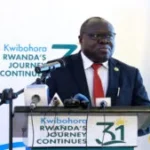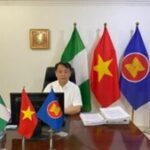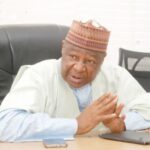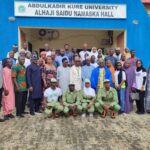How learning poverty can be eradicated in Oyo State- Stakeholders
A News Analysis by Ibukun Emiola, News Agency of Nigeria (NAN)
Oyinkansola Ademola and OreOluwami Ajisafe are 11-year-old female Junior Secondary School (JSS) students who have a formal education in Ibadan, Oyo State.
While Oyinkansola attends a public school in a semi-urban area, OreOluwami attends a private school in an urban area and both aspire to be medical doctors in the future, yet their learning experiences are not the same.
Oyinkansola, during a class exercise given by her teacher on future ambition and why she chose that career, could barely write a sentence legibly and intelligibly.
On the other hand, OreOluwami attempted the same exercise brilliantly, specifying her choice specialty, Pediatrics.
This scenario above buttresses learning poverty which Gender Responsive Education Sector Planning (GRESP) could address if well implemented in the state according to experts.
Although poor learning is not the only factor that contributes to learning poverty, it is one of the key elements.
In Nigeria, 70 per cent of children in their 10th year cannot read a simple sentence according to UNICEF but findings on the field in Oyo State revealed that this is not only limited to reading but writing as well.
Experts have argued there should be no disparities in the quality of education every child receives, observing that there should be equal access to quality education for all, regardless of location, status, and ethnicity of any child which can be achieved if the Gender Responsive Education Sector Plan (GRESP) is operational.
An assessment to determine the Learning Poverty rate (LP) was carried out among 185 students from the JSS arm of two schools in Ibadan; 102 students from a public school and 83 students from a private school located in the interior of Yemetu and Total Garden communities in Ibadan participated respectively.
Findings indicate a high LP rate in the public school assessed put at 60 per cent, as opposed to a 10 per cent LP rate in the private school assessed.
In the public school where the exercise was done, students in JSS 3 have the highest LP rate, more than 50 per cent of those assessed could not write a sentence intelligibly.
Also, a survey was conducted on the free education policy of the Oyo State Government and it shows that 64.52 per cent of respondents agree or strongly agree with the policy, describing it as good.
However, they called for the recruitment of more qualified teachers and effective monitoring as well as infrastructure and learning facilities for a robust learning outcome.
Respondents believed in equal access to quality education for both males and females, though they knew nothing about the GRESP framework.
Miss Tamilore Bode-Are, a graduate who had her teaching practice in Oyo State shared her experience, noting that free education helps to give access to every child regardless of status, ethnicity, and location.
She advocated for a good learning environment, training, and support for teachers, adding that parents should support their children and be involved in monitoring them to achieve quality education.
“There should be training for teachers from time to time to develop them intellectually and help them pass the right knowledge to students,’’ she said.
The Registrar of Teachers’ Registration Council of Nigeria (TRCN), Prof. Olusegun Ajiboye, said that the state “is currently implementing some gender-sensitive projects under the World Bank/Federal Ministry of Education to increase female participation in education.
“More sustainable approaches are required to engender balance between male and female participation in education in the state.
“Education is capital intensive. Government alone cannot carry the burden. We need private participation to sustain the current achievements in Oyo State. More funding is required both from the government and private sector.
“Education infrastructure in the state needs to be revamped to meet the 21st century global standards.
“Teacher training and retraining is crucial for sustained achievements. This should also be backed up with teacher motivation and welfare.’’
Also, Dr Muyiwa Bamgbose, the Chief Executive Officer of the Education Advancement Centre who had served as a consultant to the Oyo State government in the recruitment of teachers and pioneered a school-on-air initiative just before the Covid-19 pandemic, said that a factor that could help “in the education of children is the parent involvement’’.
According to him, to eradicate learning poverty, there must be more qualified teachers and teacher commitment or motivation must be ensured.
“But we see that we don’t have enough teachers. We don’t have enough to spread around all the schools, especially the schools in the rural areas, in the suburban, you know, so those places are underserved.
“Also, parent involvement is really lacking. One of the problems with parent involvement is the fact that the government is stopping people from paying. They are making politics out of parents paying for education.
“This free education policy is like a two-edged sword. It has its own negative repercussions on the attitude of parents and the outcome of learning,’’ Bamgbose said.
With parents withdrawing their wards from private schools to public schools due to the prevailing economic situation, Dr Kayode Adeyemi, the National Secretary, National Association of Proprietors of Private Schools, said “there is a need to balance the fact that parents resort to public schools and the lack of enough capacity to absorb the surge’’.
Adeyemi noted that in public schools, students could be up to 70 in a class and oftentimes, many of them might sit under the trees due to infrastructural decay.
“Hence the need for the government to intervene and help in building and sustaining the capacity of private schools before the education sector is completely stuck,’’ Adeyemi said.
In an interview with the Oyo State Commissioner for Education, Prof. Salihu Adelabu, he reiterated the commitment of the state government on the platform of its Sustainable Development Agenda, Omituntun 2.0, adding that the bedrock of any development is education.
“So, therefore, education plays a strategic and pivotal role in the administration of Gov. Seyi Makinde of Oyo State,” Adelabu said.
Adelabu said that in the area of infrastructure, the administration has been doing its best by building model schools and reducing the population in each school.
“What we are doing is splitting to give the head of the school, the principal, a manageable number of students. We are also recruiting into our basic education as well as our secondary school.
“We are trying as much as possible to remove favouritism and nepotism in our method of recruitment and we are enforcing this on our recruitment policy,” Adelabu said.
Stakeholders, nonetheless, believe that making GRESP operational would help to improve the quality of education and reduce learning poverty in the state.(NANFeatures)(www.nannews.ng)
**If used, please, credit the writer as well as News Agency of Nigeria (NAN)
Published By
-
Deputy Editor in Chief,
Multimedia, Solutions Journalism & Website.
Has also recently published
 ForeignJuly 5, 2025Rwanda to enhance trade, aviation ties with Nigeria
ForeignJuly 5, 2025Rwanda to enhance trade, aviation ties with Nigeria ForeignJuly 5, 2025Vietnamese administrative reform will enhance efficiency- Ambassador
ForeignJuly 5, 2025Vietnamese administrative reform will enhance efficiency- Ambassador General NewsJuly 4, 2025Igbinedion varsity extends Prof. Mora’s council membership
General NewsJuly 4, 2025Igbinedion varsity extends Prof. Mora’s council membership General NewsJuly 3, 2025NYSC urges improved welfare for corps members
General NewsJuly 3, 2025NYSC urges improved welfare for corps members





